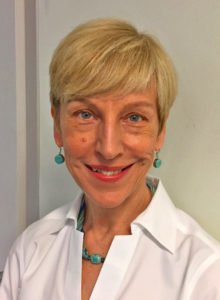Progressive Voice is a bi-weekly opinion column. The views expressed are solely the author’s.
By Cheryl Moore
In times of tragedy and uncertainty, those of us who are part of faith community often turn to that community for comfort and support. But since mid-March, turning to your faith community often meant turning on your computer and logging into Zoom.
The staff at Mount Olivet United Methodist in Arlington began preparing for disruption in early February upon hearing news about the strange new virus. The initial plans to figure out contact-less communion went out the window on March 12 when large gatherings were banned for health safety reasons.
Moving quickly is not the norm for many religious institutions, but when Covid-19 hit, things had to change immediately. And that has had implications for faith communities.
Times of crisis can also be times of opportunity and growth. Faith communities that are willing to provide new points of connection, experiment with new initiatives, and build community partnerships will likely prove resilient and more relevant.
Prioritize communication and connection
Mount Olivet associate pastor Teer Hardy related that he and other staff were first inundated with questions about the virus. He said that seminary didn’t train him about what to do in a pandemic, but it did train him in “connectedness.” Keeping its members feeling connected became goal one.
Mount Olivet expanded its Sunday worship online, and added online Sunday School, youth activities, and email devotionals. Volunteers made weekly check-in calls to older members. Callers found many seniors felt isolated even before the pandemic, so this initiative will likely continue.
Worship attendance has been surprisingly high. Said senior pastor Ed Walker, “Even members who haven’t been very active have been attending.” And one Sunday School class reported that a class member who is temporarily working in Riyadh, Saudi Arabia, gets up at 2:00 a.m. their time to join the class via Zoom.
For some in the Jewish community, however, technology has its limits. Rabbi Lia Bass, of Congregation Etz Hayim, explained that Shabbat services in her Conservative congregation cannot be live-streamed, because it would entail use of electronics, which is not allowed on Shabbat. Services on Thursday mornings and classes on Sundays are now live online, offering new opportunities for the community.
Our Muslim neighbors had the additional challenge of celebrating Ramadan, the holiest Muslim holiday, from April 23-May 23. The observant fast all day, and a nightly gathering with food and prayers at the mosque is an integral part. Those communal activities had to be canceled.
Hurunnessa Fariad, the outreach/interfaith/media coordinator at ADAMS (All Dulles Area Muslim Society) Center, said that she and her colleagues realized that social media was the most effective way to connect with its members. They quickly ramped up daily communication, reminding people to stay at home. “In the Muslim faith, saving a life is even more important than communal prayer,” Fariad said.
Experiment with new initiatives
Every Sunday evening, Patty Gibson, a member of St. George’s Episcopal Church in Arlington, joins a small group via Zoom to participate in virtual church. “I’ve talked more at these meetings than I’ve ever talked to people at church. It’s more personal, thoughtful.”
This is Gibson’s first time to be involved in this type of group. She considers herself a “semi-active” church member who attended church one or two times per month. This is filling a gap. “I don’t know if I would have signed up if I weren’t housebound,” Gibson said.
At Etz Hayim, among the new initiatives are movie discussions, a virtual happy hour with a book talk, and a social action webinar. Bass noted that some people are much more likely to attend such programs virtually, especially if they have children to care for.
Tap into community partnerships
Faith communities have also figured out how to continue to serve their neighbors, even if hands-on mission activities are not possible.
An important component of Ramadan is feeding people in need. Traditionally, the ADAMS Center hosts a nightly iftar (meal at sunset) for more than 500 community members of all faiths. Because they couldn’t gather at the mosque, the mosque leaders reached out to local restaurants to ask them to provide free food to those in need.
In Arlington, a group of eight churches partnered to form The Church at Work in Arlington. Cooperating with Arlington Public Schools’ social workers, the group provided rent assistance for dozens of low-income Arlington parents in May and June. Julia Bizer and her husband Sam lead a small group that donated funds to support one family. “We have been blessed by participating in this initiative and praying for a family we will likely never meet in person, but we will share a connection of hope and love in a time of separation,” Julia Bizer said.
What does the future hold?
Even before the pandemic hit, keeping people in the pews was already difficult. Church membership has been steadily falling since the mid-1970s, driven in part by millennials choosing to be unaffiliated. A 2019 Gallup Poll found that U.S. church membership has plunged in the past two decades, with only half of Americans identifying with a religious denomination in 2018.
Has the impact of Covid-19 caused religious institutions to expand their thinking about staying relevant? To innovate more urgently?
While the safety restrictions in Virginia have begun lifting, there is no vaccine available in the foreseeable future and fears abound about a possible resurgence of the Covid-19 virus. No matter the trajectory of Covid-19, faith communities that want to keep growing and vibrant will have to offer creative ways to ensure connectedness. Those that have been keeping their members feeling supported and engaged during this crisis will eventually draw people back to their pews – even if we’re sitting six feet apart.
Cheryl Moore is a longtime Arlington activist and volunteer, and is a member of Mount Olivet Methodist Church in Arlington.


